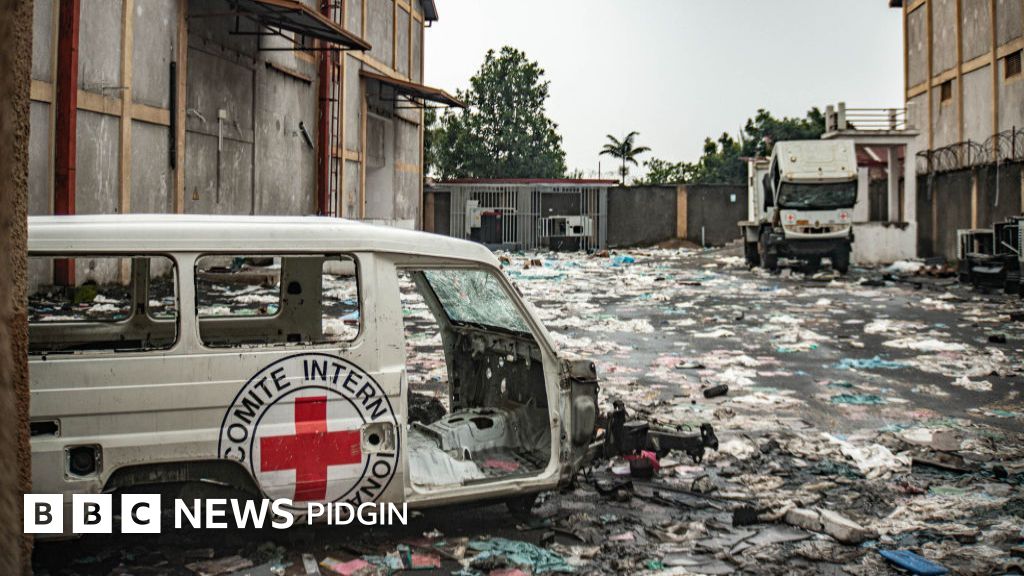 |
|
The BBC's report from Goma, Democratic Republic of Congo, paints a grim picture of a city under the control of the M23 rebel group. Despite the outward appearance of normalcy in some areas, with residents going about their daily lives, the underlying reality of a city under occupation is undeniable. Checkpoints manned by heavily armed M23 fighters are a stark reminder of the shifted power dynamic. The rebels' presence is pervasive, unchallenged, and seemingly permanent, a testament to their successful takeover. The casualness with which they inspect vehicles highlights the lack of opposition they currently face.
The humanitarian crisis unfolding in Goma is deeply concerning. Hospitals are overwhelmed with casualties from the recent fighting. Medical facilities, already stretched thin, are struggling to cope with hundreds of patients suffering from gunshot wounds, bomb injuries, and other trauma. The sheer number of injuries—at least 700 according to the UN and Congolese government—underscores the intensity and brutality of the conflict. The harrowing accounts of Dr. Nathaniel Cirho, injured while treating patients, and the elderly woman who treated her gunshot wound for days before receiving help, exemplify the suffering endured by ordinary citizens caught in the crossfire. The hospitals' capacity is severely strained, highlighting the need for urgent international aid and medical assistance.
The situation is further aggravated by reports of widespread sexual violence. The UN Office of the High Commissioner for Human Rights has warned of the use of sexual violence as a weapon of war, a claim corroborated by a doctor at a private hospital in Goma who reported treating numerous victims of rape and gender-based violence. This underscores the horrific human rights abuses occurring alongside the armed conflict, demanding immediate attention and accountability. The psychological trauma inflicted upon survivors will have lasting impacts, demanding long-term support and rehabilitation.
Beyond the immediate humanitarian crisis, the economic impact on Goma is significant. Many businesses remain closed, hindering economic activity and leaving many residents without income. The disruption of trade routes, with traders unable to transport goods into the city, is further exacerbating the economic hardship. The closure of major banks and the general fear among the population contribute to a climate of instability and uncertainty. Residents express fear and uncertainty about the future under M23 rule, with many having fled to neighboring countries such as Rwanda, Bukavu, Kenya, and Uganda. The uncertainty of the future fuels further displacement and suffering.
The military implications of the M23 takeover are equally significant. The complete absence of Congolese soldiers in Goma, along with the presence of abandoned military equipment and vehicles, speaks volumes about the swiftness and effectiveness of the M23 advance. Eyewitness accounts reveal the Congolese army's retreat, with soldiers discarding their uniforms and weapons to avoid capture. This highlights the vulnerability of the Congolese army and the superior fighting capacity of the M23 rebels. The takeover of strategic locations, including the office of the North Kivu military governor, further solidifies the M23's control over the city. The rebels' reported advance towards Bukavu and their vow to reach Kinshasa raise serious concerns about the potential for further expansion of their territorial control and the implications for regional stability.
The conflicting narratives surrounding the situation are further complicating the response. While the Congolese government denies the complete capture of Goma and accuses M23 of illegal occupation, supported by Rwanda, Rwanda itself consistently denies backing the rebels, but their response has become increasingly defensive. This lack of clarity and the conflicting claims from involved parties hinder international efforts to address the conflict effectively. The international community's response will be crucial in determining the outcome of the conflict. The potential for further expansion by M23, and the subsequent displacement and suffering of countless Congolese citizens, demand immediate international action and coordinated strategies to address both the immediate humanitarian crisis and the underlying causes of the conflict.
Source: DR Congo conflict: Inside Goma, di city wey dey under M23 rebel control
